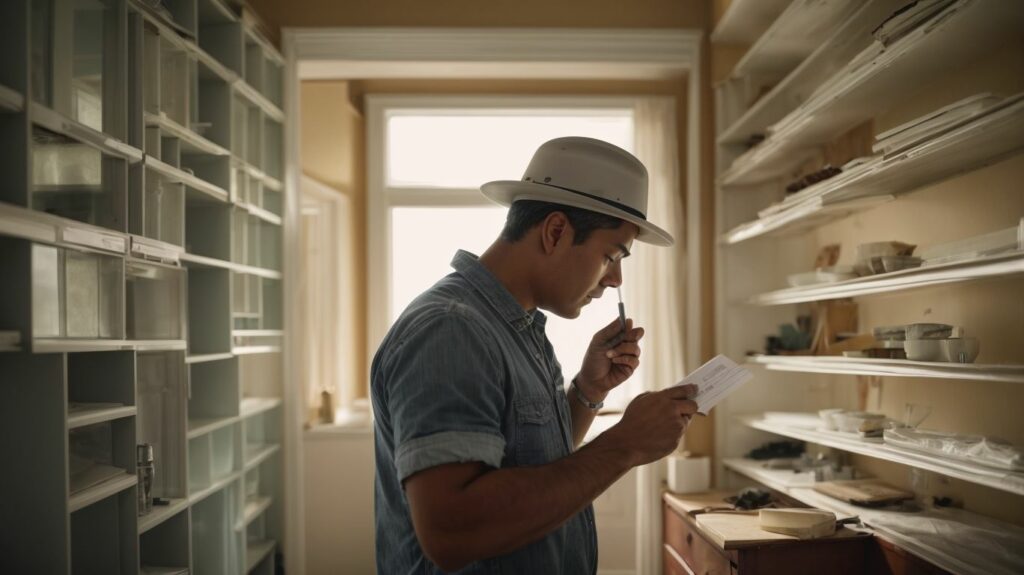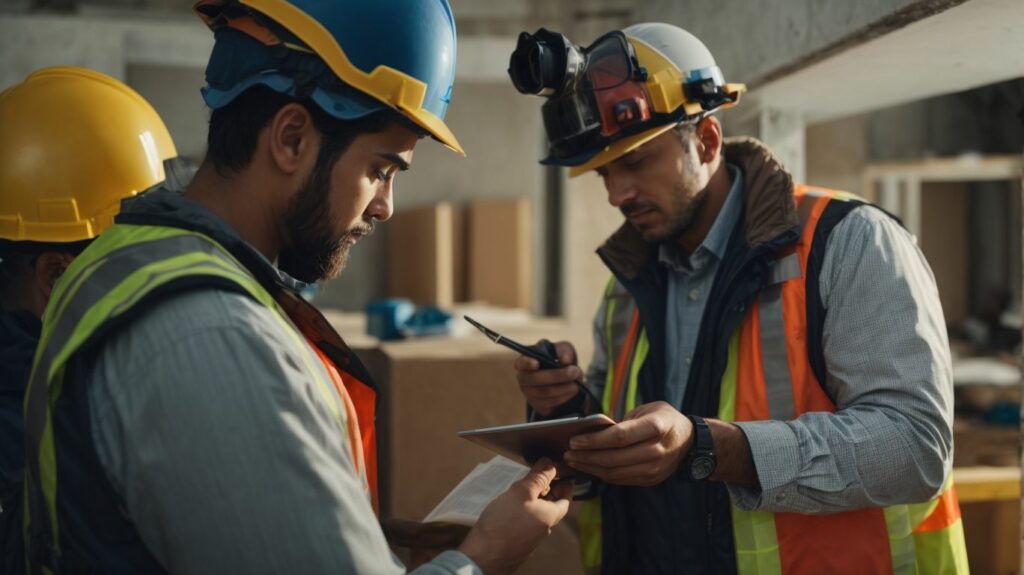20+ Years Experience
Specialist Property Inspections

Enquire Today For A Free No Obligation Quote
Property inspections play a crucial role in the process of buying, renting, or selling a property. These inspections involve a comprehensive evaluation of the property to identify any potential issues, ensure safety and compliance, and assess the overall condition. Property inspections are essential to make informed decisions and protect your investment. They offer numerous benefits including peace of mind, early detection of potential issues, and negotiation power. There are different types of property inspections, such as pre-purchase inspections, routine inspections, pre-lease inspections, pre-sale inspections, and specialized inspections. When choosing a property inspection service, factors like experience, expertise, reputation, services offered, and cost should be considered. By understanding the types and benefits of property inspections and selecting the right service, you can make informed decisions and ensure a smooth property transaction process.
Property inspections are thorough assessments conducted on properties to evaluate their condition and identify any issues or potential problems. These inspections are usually carried out by qualified professionals or licensed inspectors who have the knowledge and expertise to identify structural, electrical, plumbing, or other issues. Property inspections are crucial when buying, selling, or renting a property as they provide valuable information about its overall condition. Property inspections can help uncover hidden defects and allow for necessary repairs or negotiations. It is recommended to schedule property inspections to ensure the property‘s safety and to make informed decisions about its purchase or maintenance.
Consider the following suggestions for property inspections:
| 1. Research and hire a reputable and experienced property inspector. |
| 2. Attend the inspection to ask questions and gain a better understanding of the property’s condition. |
| 3. Review the inspection report carefully and consult with professionals if needed. |
| 4. Use the findings to negotiate repairs or adjustments during property transactions. |
| 5. Regularly schedule maintenance inspections to prevent future issues and ensure the property’s longevity. |
By following these suggestions, individuals can make informed decisions about their properties and ensure their safety and well-being.
Property inspections are important because they play a crucial role in ensuring the safety, compliance, and overall condition of a property. We will explore various aspects like ensuring safety and compliance, identifying structural issues, and assessing the overall condition. We will uncover the hidden factors that make property inspections an essential part of maintaining and thriving in the real estate market.
Ensuring safety and compliance is a critical aspect of property inspections. When conducting a property inspection for safety and compliance, there are several steps to consider:
By following these steps, you can ensure the safety and compliance of the property, providing peace of mind to both buyers and renters.
One of the key aspects of property inspections is the identification of structural issues. This is essential in ensuring the safety and stability of a building. During inspections, professionals assess the foundation, walls, roof, and other structural components for any signs of damage, deterioration, or defects. They may use tools such as moisture meters, thermal imaging cameras, or drones to obtain a comprehensive view. By identifying structural issues early on, further damage and costly repairs in the future can be prevented. It is highly recommended to hire an experienced and reputable property inspection service that offers thorough inspections and provides detailed reports to make informed decisions about the property.
Assessing the overall condition of a property is a crucial aspect of property inspections. It helps to evaluate the general state of the property, including its functionality, maintenance requirements, and potential risks. By examining various elements such as the roof, foundation, plumbing, electrical systems, and more, inspectors can identify any issues or areas of concern. This assessment provides valuable information for property owners, buyers, and renters to make informed decisions about maintenance, repairs, or potential negotiations. For example, during a routine inspection, an inspector discovered a hidden water leak that could have caused significant damage if left unaddressed. This early detection saved the owner from costly repairs and potential health hazards.
When it comes to property inspections, there are various types that cater to different needs. This section will explore the different types of property inspections, each serving a unique purpose. From pre-purchase inspections that assist buyers in making informed decisions, to routine or periodic inspections that ensure ongoing maintenance, and specialised inspections that address specific concerns, we will delve into how each type plays a crucial role in property assessment. Let’s uncover the diverse world of property inspections and understand their significance.
Pre-purchase inspections are essential in the property buying process, ensuring that buyers have a comprehensive understanding of the property’s condition and potential issues. These inspections involve a professional assessing the structural integrity, safety features, and overall condition of the property before purchase. They provide buyers with peace of mind, as any hidden issues can be identified, allowing for negotiation and potential repairs before closing the deal. When selecting a property inspection service, it is important to consider their experience, reputation, services offered, sample reports, and cost. Ultimately, pre-purchase inspections assist buyers in making informed decisions and avoiding costly surprises.
Routine or periodic inspections play a crucial role in property maintenance and ensuring the long-term safety and value of the property. Here are some steps involved in conducting routine or periodic inspections:
By conducting routine or periodic inspections, property owners can catch potential problems early on, maintain a safe environment, and protect the overall condition of the property.
During a pre-lease inspection, a tenant noticed a small water stain on the ceiling. The landlord promptly arranged for repairs before the tenant moved in, ensuring a positive renting experience for both parties.
Pre-sale inspection is a vital step when selling a property, as it helps identify any issues that could affect the sale or price negotiation process. Here is a list of steps to consider during a pre-sale inspection:Pro-tip: Providing a pre-sale inspection report to potential buyers can enhance their confidence in the property's condition and increase the likelihood of a successful sale.
- Hire a qualified and experienced property inspector.
- Have the inspector thoroughly examine the property, including the structure, electrical and plumbing systems, roof, and foundation.
- Address any major issues found during the inspection and consider making necessary repairs or disclosures to potential buyers.
- Obtain a detailed inspection report, including photographs and descriptions of any issues discovered.
- Use the inspection report to set a realistic asking price for the property.
- Consider conducting repairs or improvements before listing the property for sale.
Specialised inspections are specific assessments carried out by professionals with expertise in a particular area. These inspections focus on evaluating and identifying potential issues related to a specific aspect of a property. Here is an example:
| Type of Specialised Inspection | Description |
| Electrical Inspection | Ensures electrical systems are safe and compliant with regulations. |
| Roof Inspection | Determines the condition of the roof and checks for leaks or damage. |
| Pest Inspection | Identifies the presence of pests, such as termites or rodents. |
Specialised inspections provide a comprehensive evaluation of specific areas, offering valuable insights and helping in making informed decisions about the property. It is essential to consider specialised inspections to ensure all aspects of the property are thoroughly examined.
Property inspections offer a range of advantages for property buyers and renters. They provide peace of mind and allow for early detection of potential issues, which can be crucial for a successful real estate transaction. By understanding the benefits of property inspections, you can have more negotiation power and feel confident in making informed decisions. Let’s explore how property inspections can protect your investment, prevent future problems, and ultimately give you an advantage in the property market.
Property inspections provide peace of mind for both buyers and renters by ensuring the safety, compliance, and condition of a property.
Early detection of potential issues is one of the key benefits of property inspections. By identifying problems early on, homeowners can save both time and money in the long run. Here are steps to consider for early detection:
Fact: According to a study, properties that undergo regular inspections have a lower likelihood of experiencing major issues in the future.
Early detection of potential issues is one of the key benefits of property inspections. By identifying problems early on, homeowners can save both time and money in the long run. Here are steps to consider for early detection:
Fact: According to a study, properties that undergo regular inspections have a lower likelihood of experiencing major issues in the future.
Property inspections provide individuals with valuable negotiation power when purchasing, renting, or selling a property. Here are some ways property inspections can enhance negotiation power:
By utilizing property inspections and leveraging the information obtained, individuals can have a stronger position in negotiations, leading to more favourable outcomes.
Choosing the Right Property Inspection Service
Finding the right property inspection service is essential to ensure the safety and quality of your investment. In this section, we will explore the factors to consider when selecting a property inspection service. We will discuss their experience, expertise, reputation, and reviews, which are crucial in making an informed decision. Additionally, we will delve into the services provided, cost and fees, and the significance of sample reports. Prepare yourself to discover the essential criteria for choosing the perfect property inspection service.
When selecting a property inspection service, it is essential to consider their experience and expertise in the field. Look for inspectors who have a proven track record and extensive knowledge in conducting thorough inspections. Experienced inspectors can identify potential issues that less experienced ones may overlook. They are also more likely to provide accurate assessments and valuable insights. By choosing a highly skilled and experienced inspection team, you can have peace of mind, knowing that your property is in capable hands. Pro-tip: Do not hesitate to ask for references or check online reviews to ensure the inspector’s experience and expertise.
When selecting a property inspection service, it is essential to take into account the reputation and reviews of the company. This will enable you to assess the quality of their services and the satisfaction of their previous clients. Here are some factors that you should consider:
Pro-tip: Do not solely rely on online reviews. Seek recommendations from friends, neighbours, or real estate professionals who have had positive experiences with property inspection services.
When selecting a property inspection service, it is crucial to consider the range of services provided in order to meet your specific requirements.
Cost and fees are important considerations when selecting a property inspection service. Here are some factors to keep in mind:
When selecting a property inspection service, it is essential to examine their sample reports. These reports offer valuable insights into the thoroughness and quality of the inspection process. A well-organised report should contain detailed descriptions of findings, photographs or diagrams for visual reference, and recommendations for addressing any identified issues. Sample reports also give an indication of the format and organisation of information, making it easier to comprehend and navigate. By reviewing sample reports, you can ensure that the property inspection service meets your expectations and requirements. This is a crucial step in making an informed decision.
Property inspections are important for landlords as they allow them to assess the overall condition of the property, identify any necessary repairs or maintenance, remind tenants of their responsibilities, and address maintenance and safety issues promptly.
The frequency of periodic property inspections is generally recommended every three, four, or six months, considering seasonal changes and weather conditions that may affect the state of repair of the property.
During property inspections, landlords should check for compliance with health and safety regulations, including testing smoke and CO alarms, verifying hot water and heating systems, checking appliances, and inspecting the electrical system for any damage.
If access is denied, landlords should emphasize the importance of the inspection for safety and habitability. If communication with the tenant is difficult, sending letters via recorded delivery can help ensure they receive the notice.
Landlords can maintain a long-term relationship with their tenants by providing reasonable access for inspections, being flexible with rescheduling, addressing necessary repairs promptly, and regularly reminding tenants of their responsibilities and the importance of reporting problems as soon as they occur.
Landlords can settle disputes regarding property damage by conducting a full property inspection at the start and end of the tenancy, documenting the condition of the property with a proper inventory, and deducting any necessary repairs or replacements from the tenant’s security deposit.









We Aim To Reply To All Enquiries With-in 24-Hours